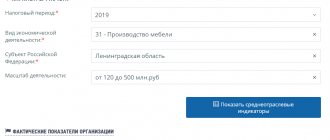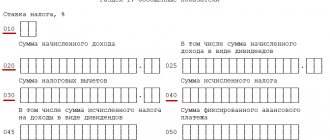An on-site tax audit (ATA) is a lengthy and not very pleasant event. The inspection period is the time that has passed from the date of the decision to conduct it until the date of drawing up the certificate of the completed on-site inspection. The Tax Code says that this period cannot exceed 2 months. However, in practice, the GNP may be significantly delayed.
The Tax Code provides for the possibility of extending an on-site inspection for up to 4 months, and in exceptional cases - up to 6 months. The grounds and procedure for extending the terms of the GNP are defined in the Order of the Federal Tax Service of the Russian Federation dated November 7, 2018 No. ММВ-7-2/ [email protected]
An audit may be extended both for reasons related to the taxpayer, his status or actions, and for reasons beyond the control of the person being audited.
Largest taxpayer
When auditing the largest taxpayers, the timing of the on-site audit may be increased for quite logical reasons - the status of the largest involves a large number of transactions, significant volumes of revenue and documents, which means that the audit will require more time.
One option to avoid audits is tax monitoring . This is a form of control when the Federal Tax Service gains access to information systems, accounting and tax reporting of an organization. For example, to the 1C database, electronic document management, etc. Since 2022, companies such as Rosneft or Gazprom (their subsidiaries) have been participating in tax monitoring.
As well as foreign Procter & Gamble, METRO Cash & Carry, Nestlé, etc.
During the period of tax monitoring, desk (clause 1.1 of Article 88 of the Tax Code of the Russian Federation) and on-site (clause 5.1 of Article 89 of the Tax Code of the Russian Federation) inspections are not carried out.
Answer
As a general rule, the period for a desk audit of a VAT return is 2 months. However, it can be extended up to 3 months if the inspection establishes signs of a possible violation of tax laws. Moreover, according to the Ministry of Finance of Russia, employees of the Federal Tax Service are not obliged to inform the taxpayer about the extension of the period for conducting a desk audit of the VAT return submitted to them.
The inspection may request documents necessary for a desk inspection only during the inspection. The inspectorate has the right to request documents outside the period of a desk audit only in one case: if, after the end of the audit, a decision is made to carry out additional tax control measures (clause 6 of Article 101 of the Tax Code of the Russian Federation, Letter of the Ministry of Finance of Russia dated February 18, 2009 N 03-02-07/1 -75). In other cases, the inspection does not have the right to request documents outside the period of the desk inspection.
It is likely that your inspection exercised its right to silently extend the desk inspection from 2 to 3 months. Therefore, the tax office may send a demand to your address, but never send a decision.
What else you need to know about the timing of the on-site inspection
In addition to extending the deadline, the tax authority may decide to suspend the GNP. In this case, the deadline stops running, and the check is essentially shifted to the future .
The inspection may be suspended for a total of no more than 6 months. The reasons for suspending an on-site tax audit are:
- counter audits of taxpayer counterparties,
- receiving information from foreign states (in this case, the inspection may be suspended for up to 9 months),
- carrying out examinations,
- translation of documents in a foreign language.
During the suspension of an audit, the tax authority does not carry out control activities on the taxpayer’s territory, returns original documents received during the audit, suspends requests for new ones, and does not conduct inspections.
In practice, extensions and suspensions rarely occur once and immediately for the entire period allotted by law. More often, there are situations when the tax authority first decides to suspend for counter-inspections, then extends the inspection period to obtain additional information, followed by a suspension for the duration of the examination, then an extension again, and so on several times. In such a situation, it can be quite difficult to keep track of compliance with deadlines and the sufficiency of grounds for certain actions of inspectors.
Due to the appointment of additional measures for large businesses, the duration of the inspection may last for 1.5-2 years.
In addition, during the audit you have to constantly interact with tax inspectors: collect the necessary documents, write explanations and objections. The timing of such interaction is limited by law, so this work cannot be postponed until later; current tasks have to be postponed. A company does not always have enough employees to dedicate a separate person to communicate with tax authorities.
In order not to distract employees from current work tasks, you can hire third-party consultants who are professionals and have extensive experience in interacting with tax authorities when conducting tax audits.
Make an appointment with a lawyer
As already noted, the terms of the GNP are calculated from the moment the decision on the inspection is made and until the date of drawing up the certificate of the inspection. However, drawing up a certificate does not mean that communication with the tax authorities is over and you can breathe easy.
Within two months after completion of the audit, tax officials prepare a report on the results of the GNP. Then another month is given to the taxpayer to file objections to the tax audit report. Then comes consideration of objections, pre-trial resolution of issues with tax authorities, and possibly a trial.
Please note: violation by the tax authorities of the general audit deadlines cannot be the only basis for canceling the decision.
All this requires a considerable amount of time, as well as knowledge and experience in communicating with tax authorities. It is almost impossible to transfer a qualified employee to communicate with the tax authorities on tax audit issues without compromising his current work.
To prevent a tax audit from paralyzing the company’s work, you can engage tax lawyers for the period of the GNP.
Deadline for suspension of on-site tax audits in 2019
The total period of suspension of an on-site tax audit cannot exceed six months. (clause 9 of article 89 of the Tax Code of the Russian Federation) In the event that an on-site tax audit was suspended to obtain information from foreign states (clause 2 of clause 9 of article 89 of the Tax Code of the Russian Federation), and within six months the tax authority was unable to obtain the requested information from foreign government bodies within the framework of international treaties of the Russian Federation, the period of suspension of this inspection may be increased by three months. Attention ! In the case of “Suspension of an on-site tax audit,” the taxpayer’s requirements for the provision of documents sent to the taxpayer after the date of the decision to suspend the on-site tax audit are not subject to fulfillment by the taxpayer. At the same time, previously received by the taxpayer in accordance with Art. 93 of the Tax Code of the Russian Federation, the requirements must be fulfilled. In case of suspension of the visit, the tax authority is obliged to return to the taxpayer all originals requested during the audit, with the exception of documents received during the seizure. The actions of the tax authority on the territory (premises) of the taxpayer related to the suspended inspection are also suspended (prohibited).
Either inspection or monitoring
The tax inspectorate cannot conduct an on-site tax audit during the period when tax monitoring was carried out. An exception to this rule are cases when (clause 5.1 of Article 89 of the Tax Code of the Russian Federation):
- An on-site audit is carried out by a higher tax authority for the purpose of monitoring the work of the Federal Tax Service, which carried out tax monitoring.
- Tax monitoring was terminated early.
- The company did not comply with the instructions of the Federal Tax Service as part of its tax monitoring.
The company submitted to the Federal Tax Service an updated tax return for the period when tax monitoring was carried out, reducing the amount of tax payable.
No more than twice a year
During a calendar year, the tax office can conduct no more than 2 on-site inspections. Moreover, it is impossible to check both the organization itself and its branches and representative offices more than twice during the year (clauses 5, 7 of Article 89 of the Tax Code of the Russian Federation).
Independent inspections of branches and representative offices are not taken into account (clause 5 of Article 89 of the Tax Code of the Russian Federation). In other words, if the tax inspectorate checked the entire organization, including a branch, and then checked the branch separately, then the tax authority has the right to conduct another on-site tax audit of the organization. However, if the tax inspectorate twice conducted an on-site tax audit of the organization as a whole, it does not have the right to conduct a separate on-site audit of a branch during the calendar year.
At the same time, the head of the Federal Tax Service may decide to conduct an on-site tax audit in excess of the established limit (clause 5 of Article 89 of the Tax Code of the Russian Federation).
Find out about upcoming inspections by the Federal Tax Service, the Pension Fund of the Russian Federation, the Social Insurance Fund and other regulatory authorities with the help of Kontur.Expert
Send a request
The right to red tape, or Endless tax control
The ruling of the Supreme Court of the Russian Federation dated August 29, 2019 No. 305-ES19-13947 reflects like a drop of water the approach of tax authorities and courts to the deadlines established in the Tax Code of the Russian Federation, formed in recent years: “The deadline for conducting an on-site tax audit and making a decision based on its results execution is not preemptive and its expiration does not prevent the tax authority from identifying facts of non-payment of tax.”
Despite the fact that the judicial act of the Supreme Court of the Russian Federation was issued in a specific case, and the refusal to satisfy the application is due, among other things, to the fact that the delay in deadlines was due to additional tax control measures, the court made a general conclusion that the deadlines for making a decision based on the results of the tax audit were met .
The above formulation justified the widespread red tape in tax audits. Tax authorities exceed the deadlines for conducting a tax audit, the deadlines for processing its results, and the deadlines for making decisions. In the author's legal proceedings, there are several audits in which tax audit reports and then decisions were made with a delay of six months to a year and a half or were not made at all. Of course, complaints about red tape were refused.
From the author’s point of view, the institution of procedural deadlines in the Tax Code of the Russian Federation has been leveled today. Let's look at a specific case.
The tax audit report is sent to the taxpayer six months after the date of issue by post. The taxpayer did not receive either the report or notice of the place and time of consideration of the tax audit report; the letters were returned. The tax authority reviewed the tax audit report without the participation of the taxpayer and made a decision to bring the person to tax liability. Both in complaints to a higher tax authority and in two courts, we pointed out that the tax authority violated the essential conditions of the procedure for considering tax audit materials, which is the basis for canceling the decision of the tax authority to prosecute for committing a tax offense. Violation of deadlines by the tax authority prevented the taxpayer from participating in the consideration of the tax audit report, familiarizing himself with the inspectors’ findings, and submitting objections. The taxpayer did not keep track of the mail, but he did not have to wait more than six months for letters from the tax office.
However, neither the tax authorities nor the courts agree with us. The main argument: the taxpayer always bears the risk of not receiving a tax audit report and notifications at his location indicated in the Unified State Register of Legal Entities.
And here the question arises: is the taxpayer really Solveig, who waits for Peer Gynt until old age and remains faithful to him? If the tax authority delays the timing of the tax audit and registration of its results, then why are the risks of non-receipt of documents sent after a long time assigned to the taxpayer? If Solveig suffered because of her love for Peer Gynt, then should the taxpayer love the tax office and to what extent?
Unfortunately, today procedural deadlines under the Tax Code of the Russian Federation are a one-sided tool for influencing the taxpayer on the part of the tax authority, but not vice versa.
We will note the following. Approval of red tape quite reliably ensures the degradation and discredit of the tax service and creates a favorable environment for the manifestation of corruption.
Grounds and procedure for extending the period for conducting an on-site tax audit
The procedure establishes cases when an on-site tax audit can be extended. 02/26/2007
Reasons and order
extension of the deadline for conducting an on-site tax audit
(approved by order of the Federal Tax Service of December 25, 2006 N SAE-3-06/ [email protected] )
1. The period for conducting an on-site (repeated on-site) tax audit in accordance with paragraph 8 of Article 89 of the Tax Code of the Russian Federation (hereinafter referred to as the Code) is calculated from the day the decision is made to order the audit until the day the certificate of the audit is drawn up.
2. According to paragraph 6 of Article 89 of the Code, an on-site (repeated on-site) tax audit cannot last more than two months. This period may be extended to four months, and in exceptional cases - to six months.
3. The grounds for extending the period for conducting an on-site (repeated on-site) tax audit to four and (or) six months may be:
1) conducting inspections of a taxpayer classified as the largest;
2) receiving, during an on-site (repeated on-site) tax audit, information from law enforcement, regulatory authorities or other sources indicating that the taxpayer, fee payer, tax agent has violated the legislation on taxes and fees and requires additional verification;
3) the presence of force majeure circumstances (flooding, flooding, fire, etc.) in the territory where the inspection is carried out;
4) conducting inspections of organizations that have several separate divisions, namely:
four or more separate units - up to four months;
less than four separate divisions - up to four months, if the share of taxes paid attributable to these separate divisions is at least 50 percent of the total amount of taxes paid by the organization, and (or) the share of property on the balance sheet of separate divisions is at least 50 percent of the total value of the organization’s property;
ten or more separate units - up to six months;
5) failure by the taxpayer, fee payer, or tax agent to submit, within the time limit established in accordance with paragraph 3 of Article 93 of the Code, the documents required to conduct an on-site (repeated on-site) tax audit;
6) other circumstances. Moreover, in this case, the need and timing for extending an on-site (repeated on-site) tax audit are determined based on the duration of the period being inspected, the volume of documents being checked and analyzed, the number of taxes and fees for which the audit is ordered, the number of activities carried out by the person being inspected, the ramifications of the organizational and economic the structure of the person being inspected, the complexity of technological processes and other circumstances.
4. To extend the period for conducting an on-site (repeated on-site) tax audit, the tax authority conducting the audit sends a reasoned request to a higher tax authority to extend the period for conducting an on-site (repeated on-site) tax audit.
The decision to extend the period of an on-site (repeated on-site) tax audit is made by the head (deputy head) of the Federal Tax Service of Russia:
when extending the period of a repeated on-site tax audit conducted by the department of the Federal Tax Service of Russia for a constituent entity of the Russian Federation in order to control the activities of the tax authority that conducted the audit;
when extending the deadline for an on-site (repeated on-site) tax audit conducted by the interregional inspectorate of the Federal Tax Service of Russia for the largest taxpayers;
when extending the deadline for an on-site (repeated on-site) tax audit conducted by the Federal Tax Service of Russia. In this case, a reasoned request to extend the period for conducting an on-site (repeated on-site) tax audit is submitted to the head (deputy head) of the Federal Tax Service of Russia by the head of the inspection group (team).
In other cases, the decision to extend the period of an on-site (repeated on-site) tax audit is made by the head (deputy head) of the department of the Federal Tax Service of Russia for the constituent entity of the Russian Federation
Post:
Comments
Honest Citizen
November 24, 2009 at 12:56 pm
2nd accounting or just black and white salary - IS THIS A REASON FOR A Tax Audit….
This is a clear violation of tax laws...
Article 199 of the Criminal Code of the Russian Federation “Evasion of taxes and (or) fees from an organization
Article 199.1 of the Criminal Code of the Russian Federation “Failure to fulfill the duties of a tax agent”
Article 199.2 of the Criminal Code of the Russian Federation “Concealment of funds or property of an organization or individual entrepreneur, at the expense of which taxes and (or) fees should be collected”
When can tax authorities extend the period for checking transactions between dependent parties?
The grounds for extending the period for checking a transaction to 12 months are (clause 3 of Appendix No. 3 to the Federal Tax Service order No. MMV-7-13/ [email protected] ):
- conducting an audit of an organization classified as a major taxpayer;
- the occurrence of force majeure circumstances at the inspection site (flooding, flooding, fire, etc.);
- failure by the taxpayer to submit documents necessary for conducting an audit in accordance with clause 6 of Art. 105.17 of the Tax Code of the Russian Federation (these documents must be provided within 30 days from the date of receipt of the relevant request).
At the same time, from September 20, 2022, the above list is supplemented with a new basis for extending the inspection period (Federal Tax Service order No. ED-7-13 dated June 18, 2021 / [email protected] ).
Now tax authorities will be able to extend the period for checking transactions between related parties to 12 months in the event of failure to receive documents and information in relation to the transaction under review not only from the taxpayer himself, but also from any third parties possessing such information/documents. That is, from other participants in controlled transactions and third parties who do not provide documents and information on transactions within the period established by law.
Let us remind you that such documents and information must be submitted within 10 days from the date of receipt of the corresponding request (clause 7 of Article 105.17 of the Tax Code of the Russian Federation). If another participant in a controlled transaction for some reason cannot submit the requested documents within 10 days, then increasing the verification period to 12 months can still be avoided.
To do this, such a participant in the transaction will have to send a notification to the Federal Tax Service in the form approved. by order of the Federal Tax Service dated April 24, 2019 No. ММВ-7-2/ [email protected] The notification must inform about the impossibility of submitting the requested documents within the established period, and also clarify the period during which these documents can be submitted (clause 3 of Article 93 Tax Code of the Russian Federation).






